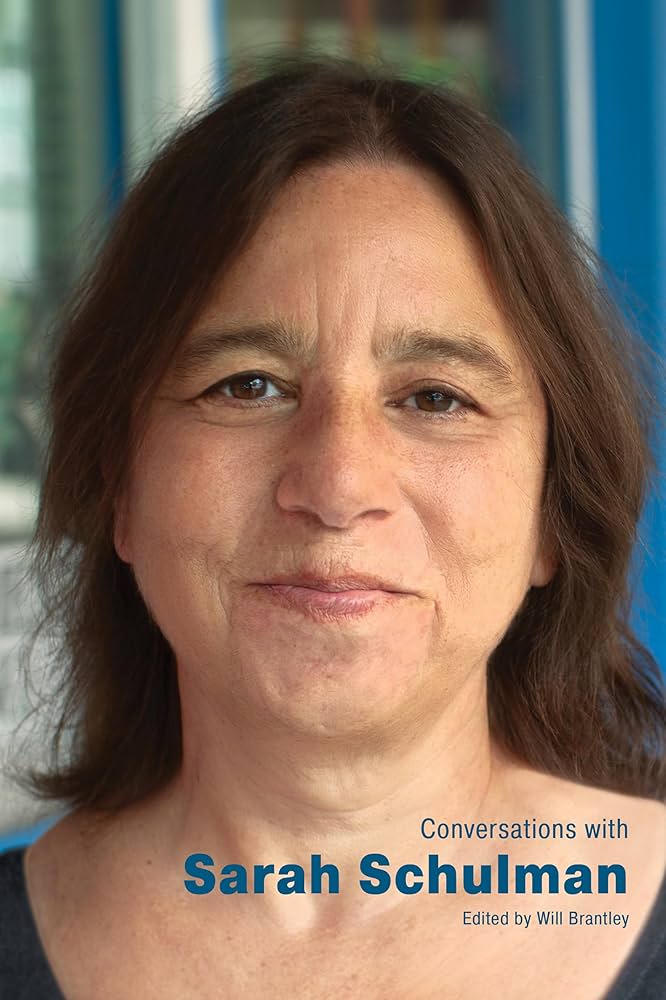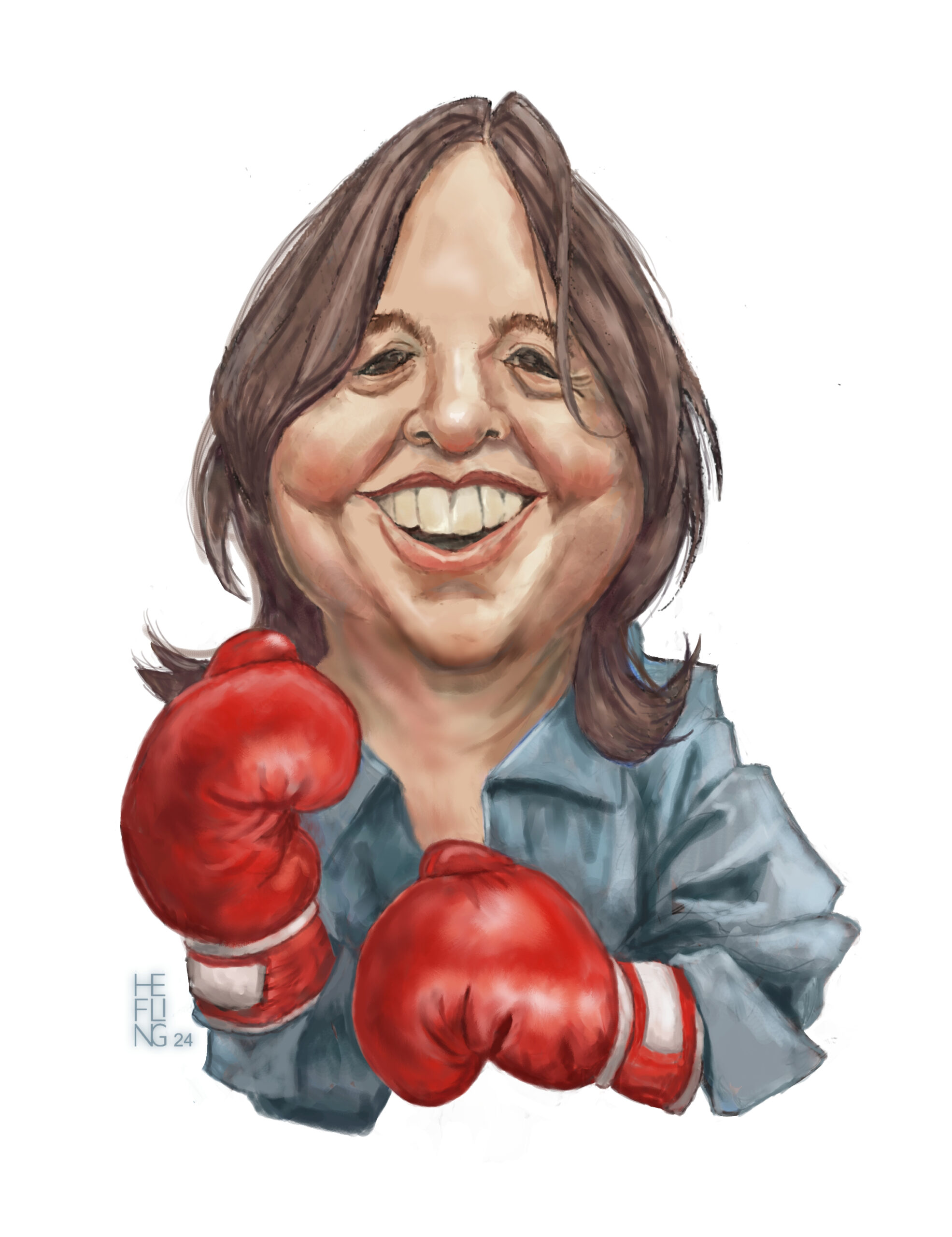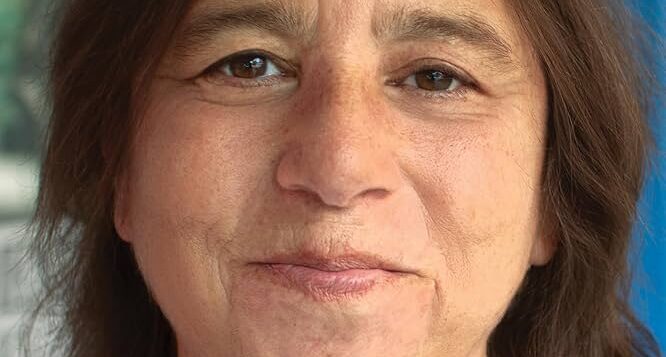 CONVERSATIONS WITH SARAH SCHULMAN
CONVERSATIONS WITH SARAH SCHULMAN
Edited by Will Brantley
Univ. of Mississippi. 175 pages, $22.
WHEN INTERVIEWED in these pages in 2016 (September-October issue), Sarah Schulman declared: “I never write about an ongoing conversation. That is to say, every nonfiction book I write is to start a conversation.” Not only has Sarah Schulman started many conversations in her eleven books of nonfiction, she has participated in dialogues of many kinds with a range of interlocutors in over forty years of public life. Editor Will Brantley has done a terrific job of assembling 24 such pieces occurring over 33 years. These interchanges point to the writer/ activist’s love of engagement, clearly affirming Brantley’s observation that “conversation is a key component of Schulman’s life.”
 Schulman also takes aim at certain members of the gay white male community for appropriating the fight against AIDS, and she’s not afraid to name names. She maintains, for example, that activist Larry Kramer’s play The Normal Heart “holds up” in its realistic depiction of AIDS better than the “ornamented theatricality” of Tony’s Kushner’s Angels in America, which represents scenes that “almost never happened in real life.” Similarly, she freely shares the derisive nickname activists gave to David France’s acclaimed 2012 documentary How to Survive a Plague: “The Five White People Who Saved the World.” Schulman places it in the tradition of the 1993 mainstream movie Philadelphia in that they “make the dominant culture feel comfortable.”
Schulman also takes aim at certain members of the gay white male community for appropriating the fight against AIDS, and she’s not afraid to name names. She maintains, for example, that activist Larry Kramer’s play The Normal Heart “holds up” in its realistic depiction of AIDS better than the “ornamented theatricality” of Tony’s Kushner’s Angels in America, which represents scenes that “almost never happened in real life.” Similarly, she freely shares the derisive nickname activists gave to David France’s acclaimed 2012 documentary How to Survive a Plague: “The Five White People Who Saved the World.” Schulman places it in the tradition of the 1993 mainstream movie Philadelphia in that they “make the dominant culture feel comfortable.”
The arc of history covered in the book highlights the cultural changes that occurred during the timespan the interviews describe. In 1988, the initial conversation considers the “lesbian aesthetic” in the depiction of lesbian violence in a novel that will be read by heterosexuals. The piece featuring the legendary Karla Jay as interviewer was published in The Village Voice. During the course of the conversation both writers discuss the impact of small women’s presses like Naiad, Firebrand, and Seal. Only Seal continues to publish today (as an imprint of a mainstream press). Yet the time stamp of this context only enhances its value, as readers are granted a snapshot of the world of lesbian life and publishing 36 years ago.
The final interview, from 2021, focuses on Schulman’s latest nonfiction book, Let the Record Show: A Political History of ACT UP New York, 1987–1993. This monumental project shares the accounts of 140 respondents in interviews conducted over eighteen years in an effort to produce an authentic record of one of the 20th century’s great social movements. Of the enthusiastic reception that greeted this book, Schulman remarks: “A lot of the things I say in Let the Record Show are things I’ve been saying for decades. It’s about men, so it gets a better publisher, it gets more attention.” To the suggestion that the book is a “counternarrative” to David France’s film, Schulman replies: “It’s not only that. It’s part of a larger problem. For example, when I wrote an article for T magazine, the gay male editor changed ‘ACT UP’ to ‘Larry Kramer’s ACT UP.’ It’s an American thing. Now we have the mythologizing of Anthony Fauci—there’s always a white man who’s going to save everybody.” (Coincidentally, I am writing this review on the publication date of Fauci’s memoir On Call. Every time I see a mainstream media interview lionizing him, I think of Sarah Schulman.)
Between these two bookends, Conversations with Sarah Schulman offers a wide range of opinions and biographical details. The writer discloses important biographical material about the current state of her health and about the influence of such literary legends as Audre Lorde and Grace Paley. A particular delight is a short piece called “Book Brahmin: Sarah Schulman,” in which she responds to a series of short questions about her reading. That all the chapters are relatively short belies the depth of their analysis of contemporary culture. While Schulman decries what she calls “theoryism”—interpreting circumstances to fit a social theory—she herself is theoretically informed, applying Jasbir K. Puar’s concept of “homonationalism” to our current national and political trends, for example. Her observations also address the more mundane preoccupations of contemporary society. One can find a defense of Facebook and a sharp critique of Patti Smith’s memoir Just Kids. If I have any objection to this collection, it is that it stops in 2021.
Will Brantley, who has provided an informative chronology and thorough index, has performed an important service in collecting Sarah Schulman’s oral history in this book. While one may not always agree with her analyses, Schulman remains one of the most provocative thinkers of our time.
Anne Charles lives in Montpelier, VT. With her partner and a friend, she co-hosts the cable-access show All Things LGBTQ.






